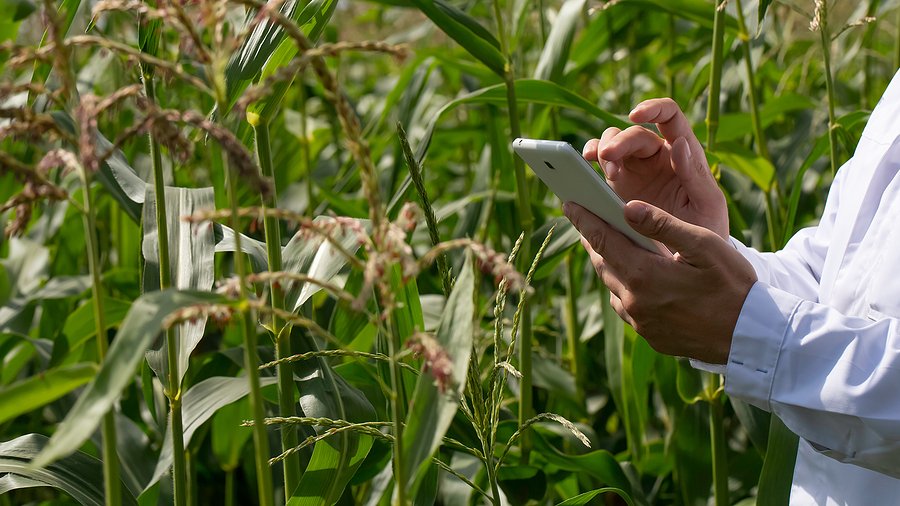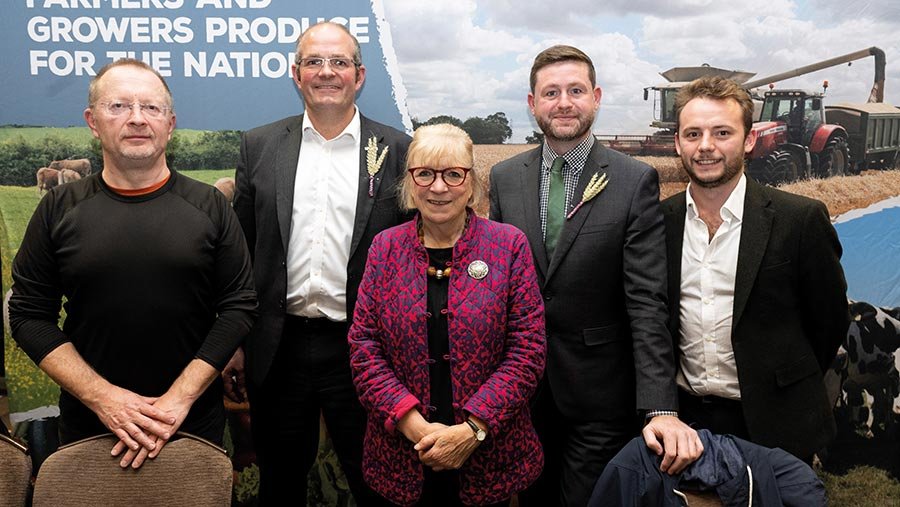The founders of AFEX have spent seven years building a commodities exchange with the goal of bringing greater efficiency and transparency to West Africa’s agriculture sector.
Their thesis: that providing farmers with tools like financing, inputs and ready market forms the basis for increased productivity and economic empowerment.
The Abuja and Lagos-based company has brought 300,000 growers onto its platform since its inception and strives to reach one million in the next three years. To do that, AFEX hopes to supercharge its reach across West and East Africa with a $100 million, 10-year bond.
The bond, called The Food Security Fund, will be used to be used to finance 250,000 hectares of commercial and smallholder farmland for high-yield, climate-smart production. It will also finance local warehouses to compensate for Africa’s lack of adequate grain and crop storage. The team says the capital will spur “a decade’s worth of impact” in food security and poverty reduction.
AFN spoke to Akinyinka Akintunde (AA), AFEX’s chief operating officer, about the necessity of unlocking capital and resources for smallholder farmers in particular.
AFN: There’s a flood of new agrifoodtech innovation being developed in Africa and Nigeria in particular. AFEX has been around longer than most of the continent’s young startups. Why did you all choose to start a commodities exchange to take to tackle persistent challenges and inefficiencies in Nigiera’s agriculture sector?
AA: A commodities exchange is crucial not only in Nigeria but across Africa. For us, the role of the exchange is two-fold. The first is to unlock capital that will drive our engagement with smallholder farmers, and the second is to create a market where farmers can sell their produce in a structured manner.
Before [starting] AFEX, we saw a disjointed approach from various actors across the agricultural value chain, with no centralized coordination in terms of how smallholder farmers are engaged and how value to them is unlocked.
Farming [is often] seen as a menial job because farmers do not get value for their produce. Middlemen exploit farmers by buying at low prices and selling to consumers at high prices.
Also, lack of capital for farmers is another big gap. The few who have access cannot get quality inputs in a timely manner. As we all know, agriculture is a time-bound activity, so timing is key for smallholder farmers.
AFN: How is AFEX moving the needle on these issues?
The real value we have brought on board is our innovative model, which heavily leverages storage operations. In essence, AFEX aggregates commodities from smallholder farmers and creates a ready market for them.
We have grown to close to 100 warehouses in 23 states across Nigeria and have over 300,000 farmers on our platform.
Recently, we started operations in Kenya to drive our vision of being the center-point for commodities across Africa and increasing the productivity of smallholder farmers to improve their livelihoods. The journey for us is to touch the lives of one million farmers in the next three years, increase the value of commodities traded, and ensure that farmers don’t see farming as just a side job but as a very productive activity.
AFN: Do you have a ready market for the commodities you buy from farmers?
Absolutely. Besides being heavy on engagement with smallholder farmers, we are heavy on engagement with the buyers of commodities. One of the critical gaps in the market today is most of buyers do not have cash on hand. That’s why we provide access to capital through the platform’s exchange.
AFN: Right, you mentioned that capital access is a key part of your model. Explain how this piece ties together with AFEX’s warehousing and buying services.
When it comes to unlocking capital, we all know that agricultural activities require a lot of capital. You cannot rely fully on farmers’ savings or the government to provide capital to make agriculture viable.
Through the exchange we are providing a structured approach in which players with excess capital can comfortably deploy it for farming activities. We have structured a market in which any investor can seamlessly provide loan facilities to smallholder farmers in an efficient and transparent manner.
Over the years our model has [also] evolved with products targeted at increasing smallholder farmers’ productivity, such as using our warehouses for distribution of fertilizers, seeds and chemicals before farmers start their planting activities.
Farming in Nigeria is still dependent on rain-fed farming, meaning that if you miss the beginning of the rainy season, you literally lose the whole year. Facilitating farmers’ access to inputs on time is critical to increasing their production. This is one the things AFEX is quite proud of. We have seen a tremendous increase in the productivity of the farmers, we engage with over 70% producing over 50% above the national average.
That, coupled with ensuring that they get same-day payments when they sell their commodities, is bringing about transformation in the agricultural sector. Paying farmers immediately ensures that they get value for their produce.
It’s a holistic approach.
AFN: What are the terms you offer for your financing to farmers?
At AFEX, we are providing an alternative to conventional bank financing. We directly engage with farmers through our field extension officers, who onboard farmers on our platform. Once the farmer is onboarded, a couple of checks are done—for instance, if he is attached to a financial institution, we check the credit history and see if he’s eligible for financing from us. If not, we ensure that we are able to provide him with access to finance.
[We offer] loans as small as $150. Farmers must come up with minimal equity contribution, about 10% of the loan value.
There is no size-limit on the loans, but the amount a farmer can access is based on how we profile his capacity to utilize the loan. Part of the field extension officer’s job is to check the land size, because our loans are tied to the size of the land.
AFN: What is AFEX looking to achieve with its new $100 million bond?
Aside from unlocking capital for smallholder farmers and commodity buyers, the fund will ensure that an all-inclusive distribution approach for quality seeds inputs to farmers is in place. Part of the [proceeds] will also go into creating processing.
It is important to note that in Nigeria there is only capacity to store 4% of annual grain production. This has led to a 300,000-metric-ton supply and demand gap for seeds, and a 10 million-metric-ton supply and demand gap for grains. The ripple effect is increasing food import costs.
AFN: What role will this capital play in helping smallholder farmers tackle climate change?
Our expansion plan is centered on putting in place structures to address the warehousing deficit across the continent. By providing storage facilities, we help cut down post-harvest losses. Our warehouses are in close proximity to smallholder farmers—something that has led to a 50% to 60% reduction of post-harvest losses by farmers on our platform.
The reason we are leveraging technology is to increase farmers’ productivity while ensuring farming methods are not detrimental to the environment.
AFN: Why did AFEX decide to launch a bond to raise the funds?
The ultimate goal is to ensure that agriculture investing becomes a viable alternative asset class for investors, including retail investors. We raised $50 million from the capital markets in 2020. [This bond] is the first [part] of a three-year program to raise short-term capital to drive agriculture productivity and replicate our model across key agriculture-producing countries.
We also want to promote commercial farming because we believe Africa should be feeding the world in the coming years.







![[Technology Corner] Autonomy Goes Mainstream with Deere’s Autonomous 8R Tractor](../ext/resources/images/Technology-Corner/OTR_Tech-Thumbnail-01-14-22.png)






